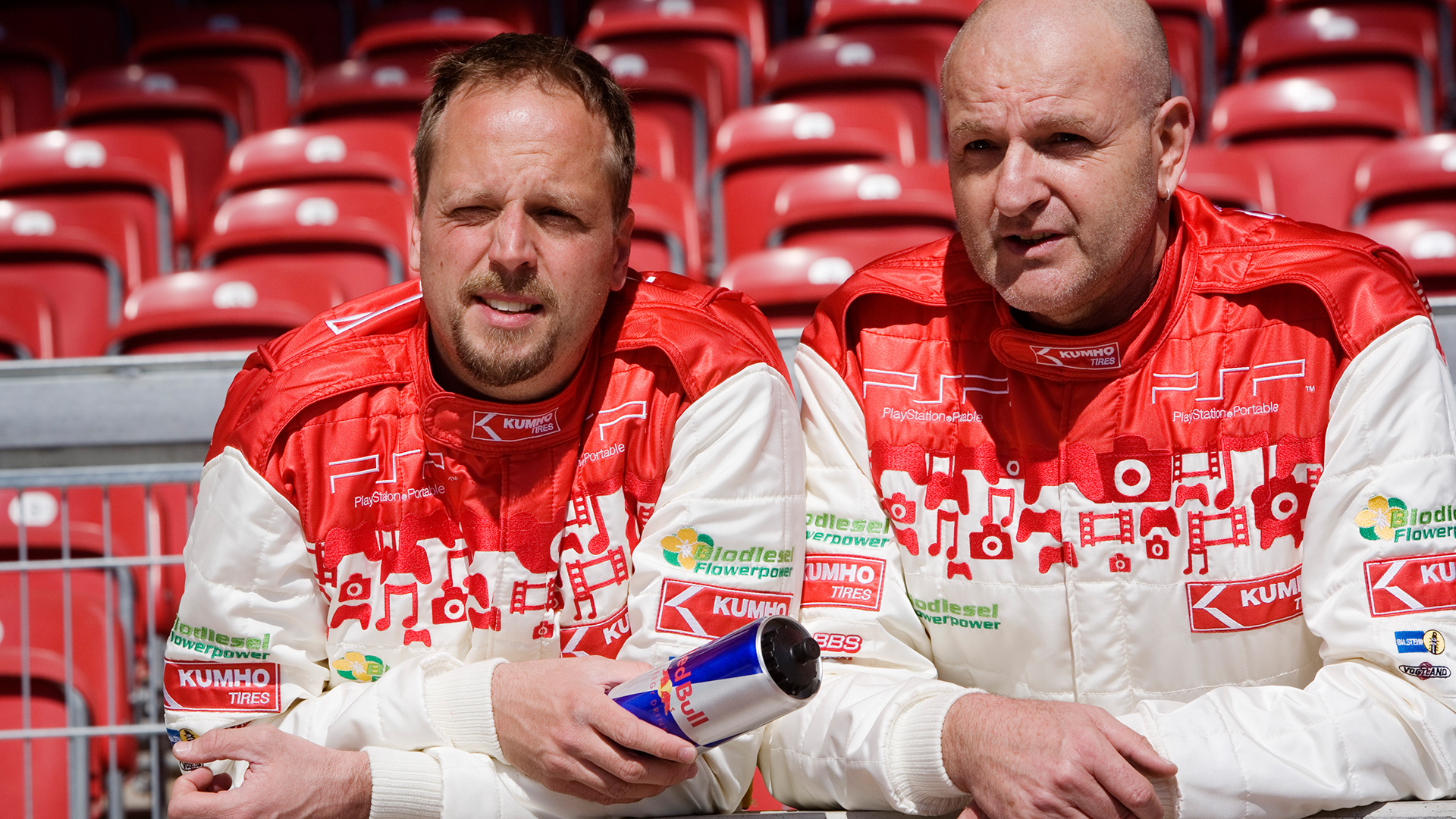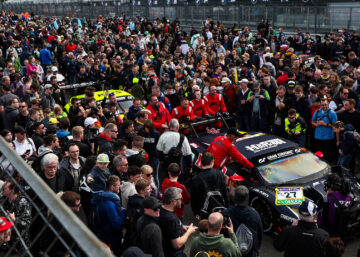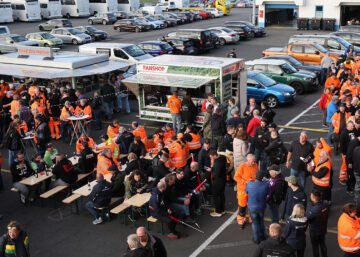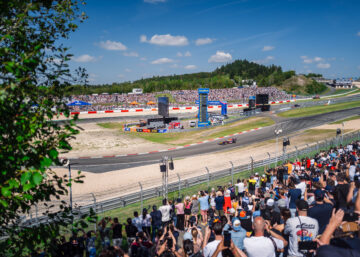Four Motors is synonymous with 20 years of green revolution in motorsport. But it was never just about motorsport or racing. The team around ex-DTM driver Tom von Löwis and Smudo, frontman of Die Fantastischen Vier, wanted to demonstrate that motorsport can be sustainable and still be fun. But how did it all actually start? And how did they get to where Four Motors is today? In a very personal interview, Tom and Smudo talk about their joint journey in motorsport over the last twenty years.
When you ask Smudo how it all began, he tells you: “Four Motors was actually a coincidence. I’ve always been a motorsport enthusiast and got on everyone’s nerves with it. One day, it must have been in 1999, someone from my management put me in touch with Tom. We met in a restaurant in Stuttgart and got on really well straight away. I then started in the ADAC New Beetle Cup in 2000, but pretty soon after that we developed the plan to enter our own vehicle. That’s how Four Motors was founded.”

While searching for partners, the team came across a manufacturer that produced sustainable fuel for tractors and trucks. And what if you use this fuel in a racing vehicle, Tom and Smudo asked themselves? This is how the issue of sustainability began: the team started with the “Fantastic Flowerpower Bio-Beetle”, a VW New Beetle TDI that ran on 100 % biodiesel. One thing led to another and Four Motors became the Bioconcept team.
In 2003, the year Four Motors was founded, neither of them had actually thought that 20 years later they would have achieved so much when it comes to sustainability in motorsport. Tom puts it this way: “I am a professional optimist and already thought that things could develop. Above all, I was convinced that sustainability in the automotive sector would be an issue at some point. We tried a lot, did many things on our own, and also made a lot of mistakes. From 2015 onwards, sustainability became an topic, at least in the corporate groups. And in the mobile sector of today, the word sustainability is mentioned in every second sentence. I think we have done everything right to a great extent.”
Even though the bio-team was smiled at as ‘green motorsport enthusiasts’ by so many at the beginning, others were also convinced by the idea. “We quickly made friends, there were people who said: ‘This is a good, progressive thing’. Because of our green elements, the regulations had to be adapted and when such a pop star competes, then that also brings glamour to motorsport. We attracted for example media and politicans who otherwise would not have been there,” Smudo says.

Of course, not everything went according to plan. For the first Bioconcept car for example, a Ford Mustang, a bodyshell was ordered from Detroit, a diesel engine with sequential gearbox was fitted and a complete chassis of a Porsche 911 was used. But at the first 24h Race, Smudo only managed to complete two laps with it before he had to pack up with engine failure. Tom remembers: “I was standing in the paddock, close to tears and said to myself: ‘I’ll stop doing this’. And at that moment a good old friend, Olaf Manthey, walked by and told me: ‘No, you don’t stop. We need precisely such teams as you are and which keep going in the direction of sustainable technologies’! That helped to take the next step, the development of the Ford Mustang GT RTD. That took time, but from 2007 the car was running, even successfully.”
After the Ford Mustang GT RTD, the world’s first vehicle with a body made of renewable raw materials and which emerged from a cooperation with the German Aerospace Centre as part of a funding project of the Federal Ministry of Consumer Protection, Food and Agriculture, the team presented the Renault Mégane RS Trophy in 2009. The bodywork was replaced by third-generation biofibre components. An engine with a B30 mix of 30% bio and 70% fossil diesel made the car a sporty bio racer. In 2011, the third generation of the bioconcept car was created in cooperation with the Institute for Bioplastics and Biocomposites (IfBB) of the Hanover University of Applied Sciences and Arts and the Fraunhofer WKI, funded by the Federal Ministry of Food and Agriculture: the VW Scirocco 2.0 TDI. This bioconcept car had lightweight body parts made of Duromer reinforced with natural fibres. Other components in the interior and engine compartment as well as in the interior were made of bio-based plastics.

2016 marked the beginning of a new era for Four Motors: the cooperation with Porsche. For the first time, a re-refined engine oil was used in the Porsche Cayman GT4 Clubsport. The use of the “recycled oil” saves up to 80 % CO2 compared to common lubricants made from crude oil. The bio-car was powered by an E20 high-performance fuel, whereby 20 % bioethanol from sustainable cultivation was added to the conventional petrol. The ethanol blend ensured up to 20% less CO2 and 60% less particulate matter.
Since 2018, Four Motors has regularly competed in the Nürburgring Endurance Series with three Porsche race cars and an international driver squad. Since then, the team has implemented many developments together with its partners, and there is much more to come. All three cars are equipped with a wide range of sustainable technologies. These include re-refined oils for the engine and gearbox, a further developed fuel with 60 % biogenic components, bio-lightweight components as well as rims made of recycled aluminium.
With regard to the future viability of motorsport, Smudo summarises it this way: “We always wanted to show that motorsport can also be green and that mobility can be made more sustainable. Motorsport offers a platform with which you can get people to see that sustainability does not have to be detrimental to sporting performance. It doesn’t have to be boring or mean having to sacrifice on something. You can’t go on practising motorsport in the way it happens today. That means sawing on one’s own branch. It is imperative that we succeed in making the sport as CO2-neutral as possible. As a motor sportsman and a fan, I think that this is the only chance for motor sports to survive!”













